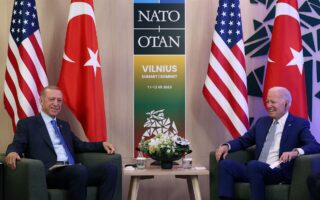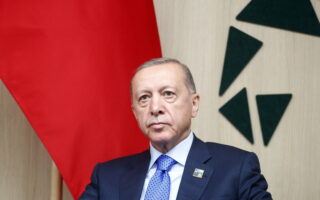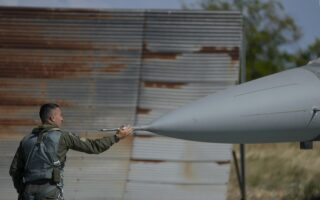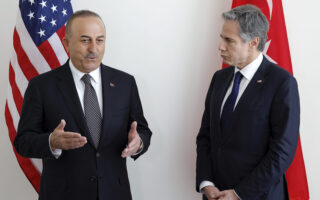The NATO Maritime Interdiction Operational Training Center at Souda
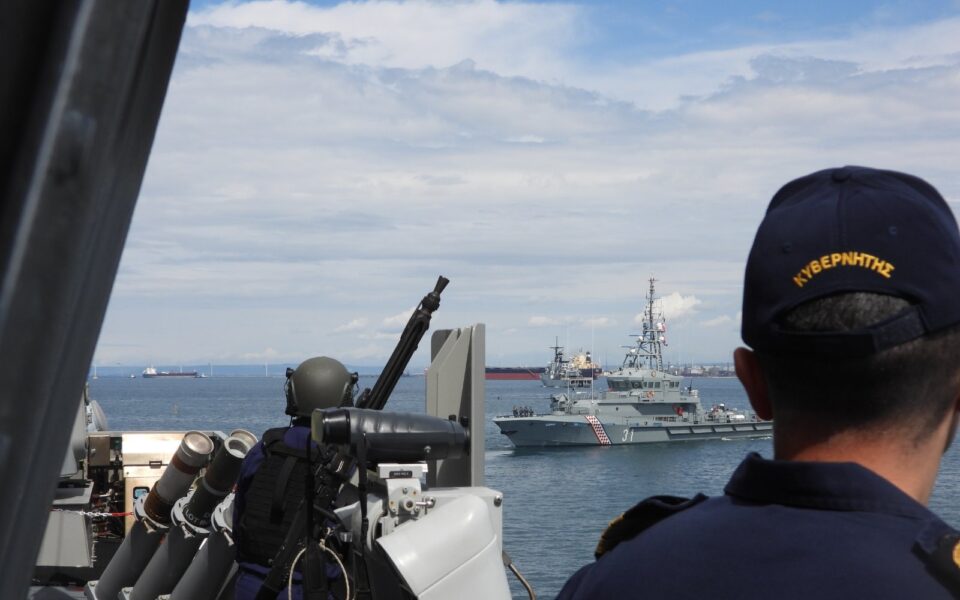
The maritime domain offers a three-dimensional space where the maritime forces can manoeuvre. From the very beginning of Naval History the core philosophy of sea interdiction was to deny the approach of enemy forces or sea commerce to main ports or vital sea areas. Such actions were called blockades and embargoes. Additionally, non-wartime actions of state naval forces included anti-piracy and anti-slavery operations.
Nowadays, the modern term of Maritime Interdiction Operation (MIO) has been formalized aiming at the protection of coastal states, vital Sea Lines Of Communications (SLOCs), choke points and straits of navigation, against the use of the maritime environment for proliferation, piracy, terrorism and human trafficking (Dr. Daniel Goure, “The Importance of Maritime Interdiction Operations,” The Lexington Institute).
The aim of Maritime Interdiction is to determine whether a vessel is in compliance or in violation of the stated reason and also to collect intelligence regarding activities taking place in the area of responsibility. During this operation several activities, inherent to the mission, take place. Surveillance of the Area of Ops, situational and environmental awareness, recognition of potential perpetrators, approach for identification, interrogation and stopping of suspect vessels, compliant, non-compliant or even opposed boarding wherever needed, inspection and collection of evidence and finally seizure or diversion when the situation dictates, are the elements of MIOs.
Training is a crucial factor in the Maritime Interdiction. To that end, the Hellenic Armed Forces decided to establish and offer to the Alliance the NATO Maritime Interdiction Operational Training Center (NMIOTC), in Souda Bay, Crete, Greece. The center NMIOTC is a NATO Education & Training Facility (NETF), the only one focused on the maritime domain. It is an international military organization which attained its full operational capability in October 2008 and awarded by the Allied Command Transformation (ACT) with its second quality assurance unconditional accreditation in May 2019. It is funded by Greece, as a framework nation, and it is multinationally and jointly manned by the ten nations: Bulgaria, Czech Republic, Germany, Greece, Italy, Poland, Romania, Turkiye, the United Kingdom and the US.
The Center is strategically located at one of the largest and most important natural ports in the Mediterranean with considerable flow of naval units, and among three major international chock points, namely Suez canal, Gibraltar and Dardanelles/Bosporus Straits. Its mission is to provide combined theoretical and practical training necessary for NATO forces and Partners in order to better execute surface, sub-surface, aerial, surveillance and special operations activities in support of Maritime Interdiction Operations. Moreover, the Centre supports the Alliance in research, experimentation, modelling and simulation, while it contributes to the lessons-learned process, and supports the development of MIO tactical doctrines, directives and manuals.
As maritime security is not only a military concern, the Center’s training audience also includes civilians from law enforcement agencies and international organizations. NMIOTC offers 26 resident (in situ) courses, over a broad spectrum of MIO related topics, ranging from Visit Board Search and Seizure procedures against threats like Weapons of Mass Destruction, CBRN and Improvised Explosive Devices, to forensics techniques and biometric data collection on scene. It also provides Combat Medical training and it is specialized in cyber defense, as part of maritime security.
The courses are in a modular structure, in order to allow for specific – tailored to the needs – training, for naval units and teams, in accordance with the needs and their available time. In addition, specialized Mobile Training and Education Teams are often deployed to offer their services, wherever needed.
NMIOTC has established a network of national and international experts that contribute to the courses coming from Interpol, Europol, FBI, US Department of Energy and maintains close links with Academia, through 17 MoUs and educational cooperation agreements in effect.
Over the years, the numbers of trainees and events at NMIOTC have gradually and steadily increased. Since its establishment, over 20,000 persons, from 107 countries of the world have been trained in the NMIOTC and for the year 2023, it is expected that more than 2,500 will attend one or more courses or activities of the center. Needless to say, that the Alliance and Greek authorities should probe into the transformation of NMIOTC as NATO Maritime Interdiction Operations Center for the conduct of Mediterranean maritime interdiction operations as well, in parallel with the already provided training. It is worth pointing out that the Hellenic Navy General Staff is receiving sincere congratulations for the NMIOTC effective cooperation and important role to World’s Maritime Security.
Panagiotis Chinofotis is a retired Hellenic Navy admiral, chief of defense emeritus and former state deputy.

